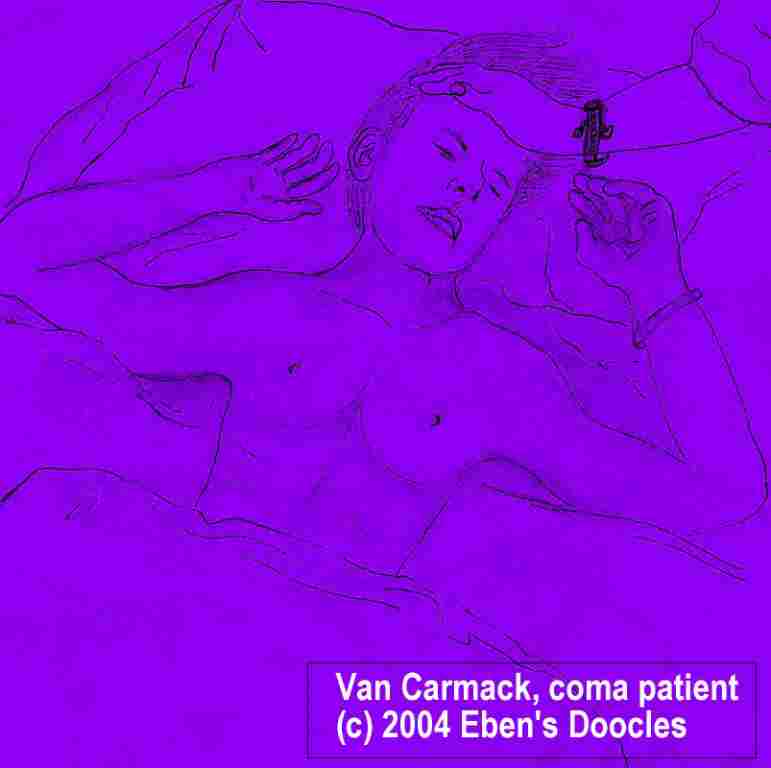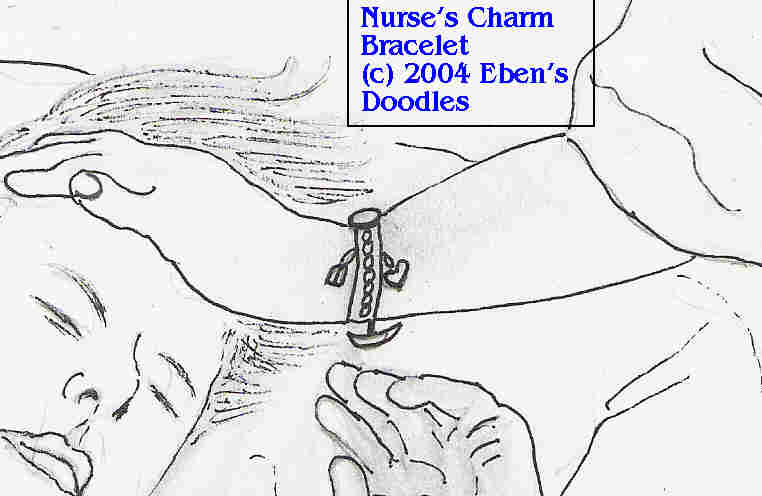

By the third generation, the Carmacks has dug in enough to spread out with thousands of other social-climbing immigrants from the crowded tenement districts to at least the environs of the American Dream. Queens, Long Island, though a integral part of New York City, was quiet and middle-class enough in the fifties and sixties to be considered mainstream suburbia even with its large population of blue-collar Italians, Germans, Scots and Irish, and though the Big Apple loomed over-large and almost menacingly on the horizon a boy could always find an empty grassy lot on which to play ball with other boys.
Grade school passed, then came high school, and before a year had passed his mother, who possessed authentic New England blue blood in her veins, began making plans for his college education. Actually, she had made them long before, but they were now coming out into discussion at the dinner table.
“Baloney!” cried his father, pulling up his sweat-stained blue collar to show he was proud of it. “What is a college education good for?” his father challenged the mother. “I make good money, don’t I—-lots more than any of your darling, tea-drinking, white-collared professors and scholars, that’s for sure!”
Off they would go, debating the "white collar" liberal arts college over the standard "blue collar" technical institute!
Blue collars? White collars? Van listened with his head down as his parents argued the same old things, which he had heard so many times he couldn’t number them.
His high-brow English-blooded mother always held the upper hand, however, being more articulate than her ex-Marine husband. She could always prove her points, whether right or wrong, so Van decided he would have to go to college as she had laid down.
But without defying her he still had the same questions as his dad. Why a college? Why couldn’t he attend a tech institute and become an electric plant operator? What was so bad about that? Why must he strive after “higher education,” as his mother called it? Why must he “strive to express himself and his potential”—as she described it? He had no idea what she meant by “potential” and “self-expression.” It was just a matter of fine words to him, when money was the only thing his mind really could grasp.
The answer was connected with his very name, if he had thought about it. Before his conception, the young Venessa and Hank, the Carmack newlyweds, had visited an art museum. It happened to have a painting by Giovanni Paolo Panini, the late Renaissance-Baroque Italian painter who lived from 1691-1765. Hank wouldn’t have given it a second glance, but Venessa began weeping as she gazed at “The Picture Gallery of Cardinal Silvio Valenti Gonzaga”.
From remarks made from time to time, Van had put together the scene at the museum that had resulted in his being given such a weird name.
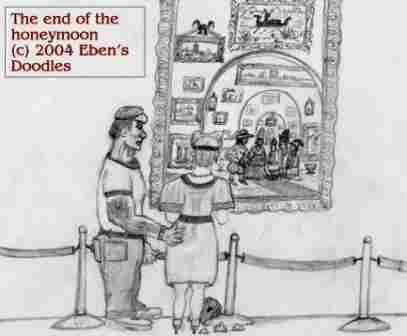
But Venessa couldn’t be dragged away. “It’s beautiful, oh so beautiful!”
“Beautiful my royal—uh--! Just a pitcher about a lot of other pitchers hung up in some fat, rich, old guy’s fancy digs! Why didn’t he just stick with one pitcher? And make it big enough to look at instead of showin’ all these little ones you can’t see?”
“Oh, you haven’t even seen a thing!” she cried, shedding tears that were drawing notice from other museum visitors. “I—I-“
By the time Hank could get her out of the museum, she had made up her mind. Her first child would be named after the great artist who had spoken so deeply to her soul.
Of course, Hank had to know why.
“But you wouldn’t understand!” was her woman’s response. “I’d be wasting my breath!”
Since she had already shown a strong mind to equal his own, he gave up trying to bend her to his own point of view just to keep a semblance of peace.
So their boy, when he came, was given the world’s most ridiculous name, according to Hank.
“The other boys will kill him because of that stupid, sissy name you gave him!” he tried to tell the mother, but she remained firm, and the name was entered on the birth certificate. “Either they kill him, or he will become a great fighter!”
Van’s fate was, more or less, sealed.
But he wasn’t a fighter by nature, especially when it was three or even four bigger classmates against one, unlike his pugilistic dad who had rapid fire fists and loved anything to do with prizefighting and martial arts. In nature, he found he was more like his mother, who liked being alone and reading books and doing various artistic projects like once decorating the house in her idea of Italian Renaissance style (using a lot of gilt paint to cover up cheap, ordinary Sears store furniture). She also took out subscriptions to art magazines and magazines that showed the glories of European palaces—-just to introduce him to a world his father never dreamt of . “I may have missed out on my chance to see these things, “ she told him, “but you will have your chance if you don’t throw yours away by getting married too soon!”
When he got to high school, his mother was all more determined to see his education through into college. He was dutiful enough, but didn’t always get the high grades she demanded, as he found he wasn’t all that interested in art and high culture and the classical music she cared so much about. He did best in math and science, but he found he couldn’t bring home a full 4 point average in just those subjects, for every A infuriated her when he didn’t match them with A’s in art and music.
Graduating, with less than 4 point average, he didn’t win any scholarships to the elite Ivy League universities or colleges, but his 3.8 average was good enough to get him accepted at Stuyvesant University, a fine old establishment which she had attended years before and which didn’t forget the honor due her Mayflower Pilgrim forebears, the Hoights who had left Durham, England, emigrating to Holland to seek freedom of worship, then sailing with a whole group of fellow believers in the Mayflower to set up a new colony in America.
“Now why does he have to go to that stuffy, old, hifalutin Dutch school of yours?” his father objected. “He’s meat-and-potatoes American! They’re not going to teach anything he can use to make money with! He’ll starve with no job in an artist’s cubbyhole apartment in Greenwich Village, or my name isn’t—“
“It’s NOT Dutch, stupid, it’s pure Mayflower Pilgrim English—that’s just the name given by some of the founders who wanted to make a tribute to Holland for having afforded them sanctuary for a time. Anyway, he’ll learn how to be a gentleman and get out of this low life we’re all stuck in!” his mother retorted, her pale English eyes flashing at her husband’s black coals. “He’ll learn all sorts of things he’ll need, like the way to speak with proper English to other educated men and women, if he is to get a good position at a bank or possibly a government—“
“It’s a waste of time and money to send him there, I tell you! And what do you mean we’re living like low life? What’s low about our life? You’ve got a roof over your head. A car to drive when I’m not using it. A vacation in the Adirondacks or the Jersey beaches ever so often. Food on your plate. And I pay the bills for all this, don’t I? Don’t I?”
“He’s going to S.U.! I won’t see my son become another ignorant, empty-brained plant operator, with nothing to show for twenty years but his savings and this flimsy old house we live in!”
Hank Carmack, shocked, gazed about at the aging Carmack residence with its peeling wall tiles and cracked paint on the molding and window sills, with lighting fixtures that looked like the gaslit 19th century’s. “Now what’s wrong with this joint? It’s just a little vintage, that’s all. These old firemen’s houses were built to last though. The older the better they get! You can’t make them any stronger than this. See, baby—“
He went to show the strength of the wall by striking it with a fist and was surprised when his hand shot completely through the kitchen wall and came out the other side in a bedroom, provoking a hysterical shriek from Charlotte, Van’s youngest sister.
His mother caught him at the door. “Where have you been?” she cried. “I’ve been out of my mind almost, not knowing if you were dead or alive, kidnapped or murdered!”
“I’m all right, I’m all right!” he cried back in her furious face. Then he pushed by her and flung himself into his father’s grease-stained, overstuffed chair.
“But you left college without telling us! You didn’t even write what you were doing! What were we to think?”
By time the whole household was up and coming in, partly dressed or still in pajamas and robes.
Knowing he couldn’t have done worse, but not knowing what else he could have done, Van tried to just sit and take whatever they said.
His father too was mad. “Yeah, what is the big idea! Throwing my good money away, taking off like that! Explain yourself!”
What could he say? He had found the whole thing impossible: having to learn things he couldn’t understand, when all he really understood was algebra, trig, geometry, and physics!
“It just won’t work for me!” he cried, breaking his silence.
“What won’t work for you?” his mother shrieked as his sisters began to cry from all the high-flying emotions of having thought him maybe kidnapped and dead, then finding him in the house but their parents yelling at him as if he were a criminal.
“I am different from you!” he cried, with with fists clenched. “ I mean, you can’t live your life in me. I can’t do that anymore. I have to live my own life! Do you understand that?”
When he finished speaking, he found himself standing over his mother, shouting into her face.
Suddenly, he felt his shoulder seized by what felt like the hand of an enraged gorilla, and the next moment he was hurled down against the sofa. He bounced off it and fell onto the floor. When he rolled over and looked up, his father had his foot pressed down on his stomach, so he couldn’t breathe.
“Don’t you mouth off to your mother that way! Why, I’ll break every bone--”
Venessa grabbed his arm, digging in her nails as hard as she could. “Leave him alone!”
Van’s sisters now flew to his aid. It was a terrible scene, and there was no sleep that night as arguments erupted between this and that party, calmed, then erupted again. What was to be done? Van wished he had never come home. He made as if to leave, but his hunk of a father blocked the door with his own body—a mass of muscle that twice outweighed Van’s and was hard as rock.
“You’re not leaving until I throw you out, understand?”
His mother then intervened. “You throw him out,” she told Hank, “and I swear I’ll leave you. Raise the girls yourself! You know you couldn’t take one week of making meals and washing for them and seeing that they do their schoolwork and tying their hair ribbons and--”
That took the wind completely out of Hank and with his face turning almost green he backed off. “Uh, I didn’t mean it! I was just trying to put a little scare into him, that’s all.”
Venessa gave him a poisonous look, then turned back to Van. “We’ll discuss this again later. I can see this isn’t going to be resolved tonight. You’ve got some sorting out to do in your mind, I think. Right?”
He shook his head. She had that right, he knew. Somehow mothers were always right about things like that. As for his dad, of course he wouldn’t have a clew.
So then he went off to bed, and a couple days later his mother stopped him when he was going out for a walk. She had a pie freshly made for him and waiting for him to have a piece with a big scoop of Vanilla ice cream.
“Let’s talk, and first we’re going to have that cherry pie you like so much! Your Grandma’s special Graham cracker crust too that you like so much!”
He wasn’t hungry, but he grinned. “Sure.”
After the pie and coffee, she looked into his eyes. “Well?”
He felt all hot in his face for a moment, then the sudden resolve gathered in his gut, and he spouted it all out. “Dad is right this time. I’m going to the tech institute!”
His mother stared at him, then swallowed, and without a word-—which was the most terrible thing to him—got up and left him.
The three year course was soon to end, with only six months to go. His father was already lining up a plant operator position at a new plant Consolidated Edison was opening in Troy. On the riverside site, rapid progress had been made, and his dad figured it would be only about six more months before it would need personnel to run it.
What could be more perfect for his son? His future was set in concrete, a sure success from the get-go! It was then on his last break he was downtown, looking casually for a shirt for the holidays, when his eye caught on a Fun Travel Argo Affiliate Agency poster, proclaiming a “spectacular” Cruise Ship “Voyage from Modern Civilization to a Lost Civilization.”
There was a picture of Brooklyn Bridge and New York City’s skyline at night above a lush, green South American mountain top ringed with the walls and temples of the Incas’ lost city, Machu Picchu. Beneath that was the sleek white T.S.S. Fairwind, sailing bravely into the greatest adventure of a lifetime. One look was fatal: a tremendous wave of feeling swept through him, and he could not find it in him to resist.

The woman at the desk didn’t seem to be interested in his going.
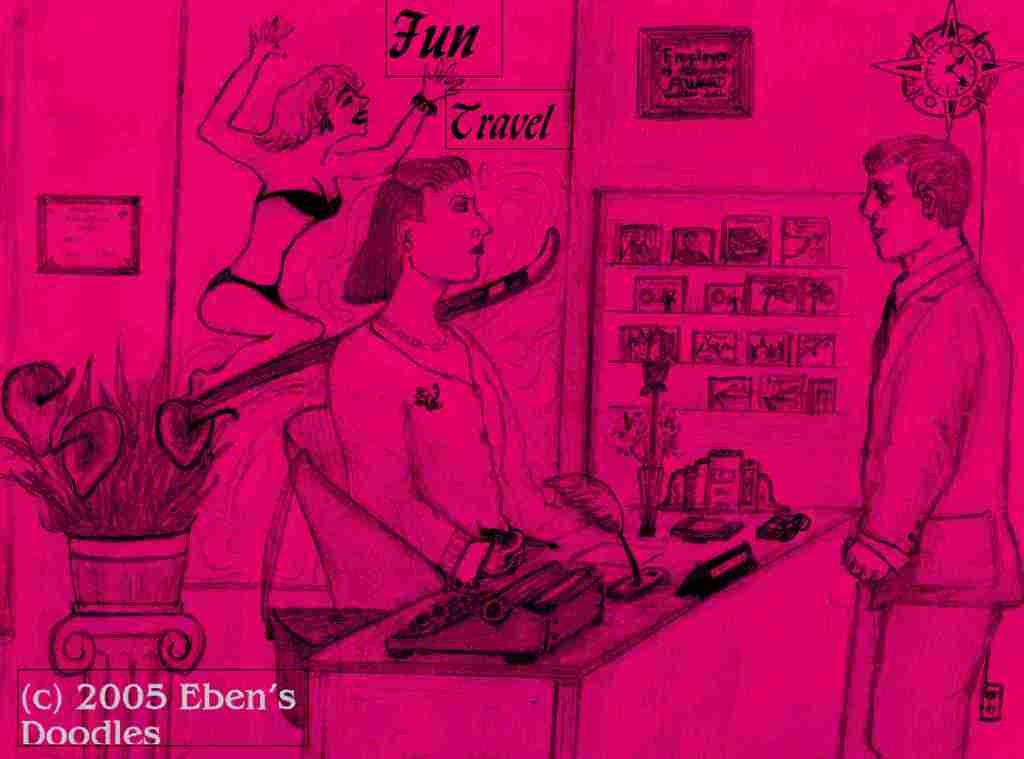
Noting an indifference and the almost pitying tone she used with his family name, he finally understood her. “My mother was a Hoight. I think they’re in your book. The first Hoights were Pilgrims related to Captain Bradshaw, you know, and came over with him and the other Pilgrims on the Mayflower.”
If a bell had rung, it couldn’t have been clearer that he was well-connected, indeed, to have a mother with Mayflower lineage! Of course, he needn’t tell her about his “blue-blooded” mother’s romantic slip into a “bad marriage” to a common working man of very mixed nationality!
Flashing him a brilliant smile, the agent chirped, pushing a button that changed the Perry Como and Frank Sinatra office music to Beethoven. “Well, excellent, sir! Why didn’t you say so before that you are a Hoight-Carmack? You’re perfectly welcome, of course! Now then, what can we do for you, sir? You absolutely going to love what we have for you on this fantastic tour!"
“It's a Norwegian-American Line cruise ship on lease, and we’ve got a crew of 500, all superbly trained Italian nationals, and unbelievable European luxury—some of the finest artwork any museum could boast! Braque, Picasso, Utrillo, Dufy, Hillaire, Idoux, even some campy Andy Warhol pop art for the younger American set! American breakfasts, French luncheons, Italian dinners—swimming pools, saunas, golf, bowling—or you can dance with your lovely date for the evening, gamble in the five casinos, watch the best movies in any of three theaters, or snack at any of the seven restaurants aboard! Imagine, the glamour of the Everglades of Florida, the Keys, the Caribbean islands of San Croix, Martinique, Dutch Aruba, then the Panama Canal and the fun of several evenings of incredible night life of the tropical port cities—then on to Peru’s imperial Spanish capital of Lima and, to climax it all, the glorious Lost City of Machu Picchu on the edge of the snow-capped, four-mile-high peaks of the Andes! Imagine yourself in such a place as you’ll never, never see here in America—an authentic lost city of the royal Incas who ruled an empire stretching from Ecuador to Chile and Argentina. That beats any Western ghost town from the Gold Rush days by a mile, I think!“
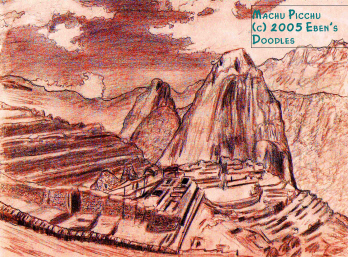
Putting the picture away, the agent went on about the tour, introducing him optional sight-seeing excursions to still-used Inca suspension rope bridges miles up in the high Andes, but he wasn’t listening. He knew he was going. He had to go! It was a sudden, irresistible urge that welled up from his inmost being! His mother was right! He couldn’t deny the part of him that she had put in him long ago before his birth! His name and what it meant to her couldn’t be put off any longer! He had six months to go at the institute but he had the agent book him for the May 14 cruise, though he might not be allowed to graduate in June if he left for twenty one days at that late date.
“Do you like to dance?” she asked, smiling.
“Oh, yes!” he lied, ashamed to tell her he had inherited his father’s total lack of rhythm and horror of slippery dance floors (his father would never forget the time he split the crotch of his new Woolworths pants trying an acrobatic Forties’ dance maneuver with a date in front of 200 other young people in a Queens dance hall).
Putting down his deposit with a check, he left, trembling in his shoes at what he had done.
His mother, sensitive to his moods, noticed something had changed in him. Before she could say anything, he pulled out a brochure and handed it to her. She looked at it, dumbfounded.
“But you’re just about to graduate in June,” she said. “How can you go on a tour like this now? What could you be thinking of? You’re not acting sensible at all. Are you crazy? Your father--”
He looked at her, unable to explain a thing, but his face must have told her what his heart could not, for her face softened, and she smiled. She took his face in her hands.
“I think it’s worth it all, just seeing you as happy as this! Whatever happens, I’ll stand behind you, Giovanni! I won’t let the brute lay one finger on you! Follow your dream! Nobody else can do it but you!”
Nobody else but his mother could call him by his horrible, foreign Italian name, if he could help it. He nodded, his face still cupped in her hands.
It was then she began to weep, and he knew exactly why this time. He put his arms around her, and she let him as her ribs fluttered against his chest.
How thin and frail his mother was! He realized with shock. She was so dominant, but it was only verbal. His father, on the contrary, was strong as a Scotch highland bull, yet bowed to her will, simply because he couldn’t outtalk her. Perhaps it was just as well—since she wouldn’t give up her dream, even if she couldn’t bring it to pass in her own life. But could he? He had just begun, he knew, to follow his dream. Where would it lead? Would his life crash in 21 days, back upon the rocks of reality? Or would this cruise really be life-changing, as he hoped with all his heart it would be? Regardless of the income, he had to risk everything. He had to find out whether dreams could ever overcome reality.
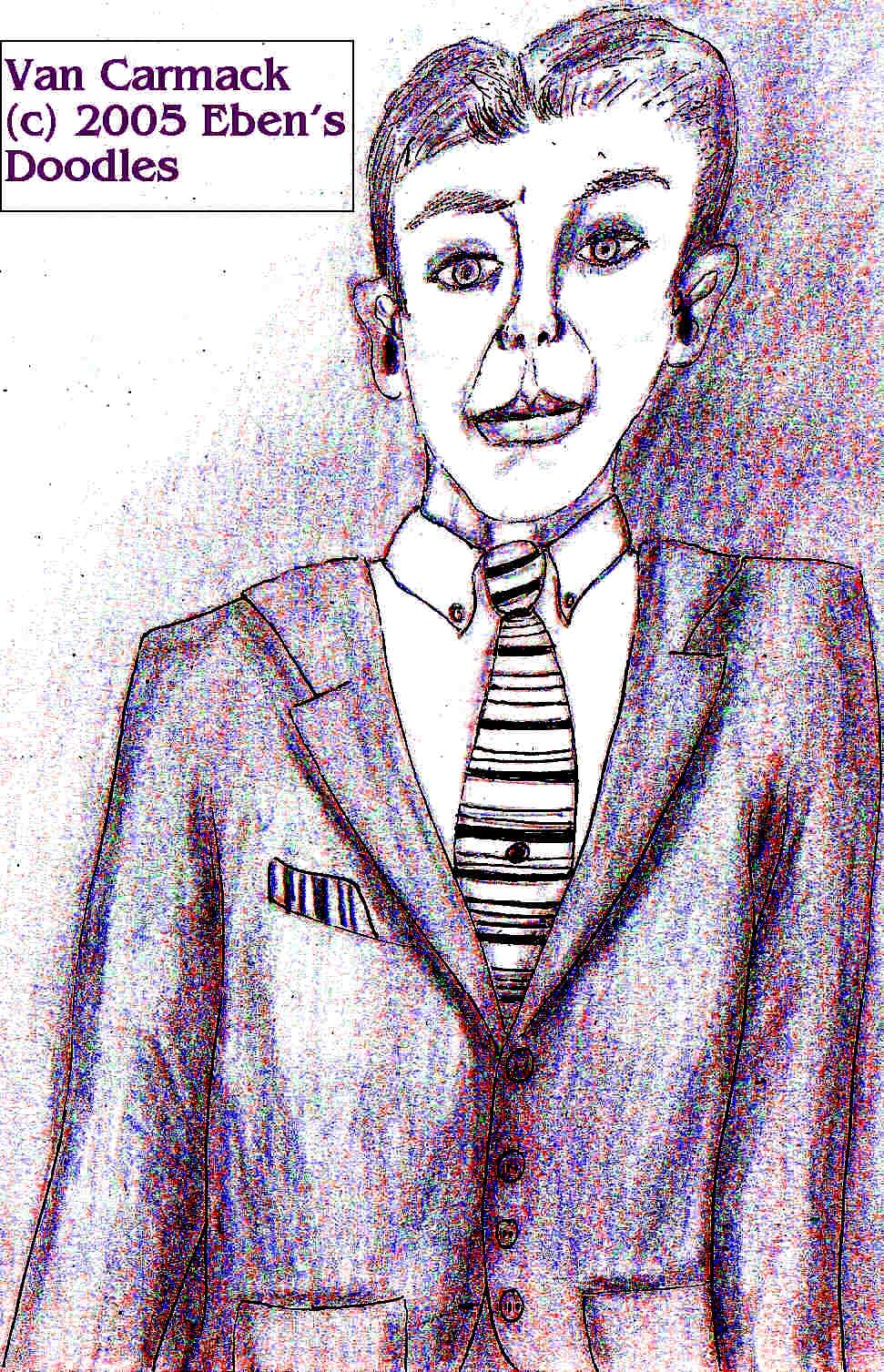
You’ll know what ship to get on, for it will take you to places you really need to go. They are places of danger and trouble that you will explore, but you must go there and see what they are like. If you don’t go and see them, you won’t become the man you are supposed to be in life. Be very careful. Don’t get drowned like some stupid kids I knowwd, or runned over by a big car like Diamond Leggs has—and you can go on the big ship of dreams.
I see it! I dreamed about it! It’s white all over, with gold stripes and flags flying on lines on the top parts, and flies as fast as planes can fly. Inside, it is beautiful too, and there are thousands of people from all over the world to talk to!
It will be fine until you pass over the sunk time gates. Then the room of death opens in the water and the ruined tower comes up at you like a reef and you all runned aground on it—then you must not get off! Listen to the old man tell you about his country that’s called—something very strange—Van??? But don’t run away with the others!
Remember one thing. Stay on the white ship even if nobody else does!!! That will save you and your dream, my secret pal. Goodbye! We’ll meet if you do what I say--“
He had grown up with Italians, and could carry on some conversation in it. In Italian, “room of death” would be “amera della morte”. Ruined tower was “Torre Sgarrata.”
Sunken time gates? Diamond Leggs? And who was the old man he was supposed to listen to? Was there really a country with his name? He had never heard of it. He didn’t dare ask his father about the possible meanings. It was best to take the cruise and face the “music” afterwards if the school administration refused to graduate him, despite his straight A record.
After all, it was the 1960s, he knew, the era of student protests, sit-ins, and black race riots and demonstrations going on everywhere. What he was planning to do fit right in with the way his generation was feeling about life, and they should just accept it and not hold his degree. That was all he could hope, he decided, since he couldn’t expect to be given a break that long without a genuine family emergency.
The fellow glanced at Van and said, "Aren't you kinda young to be traveling alone, bud?" Shaking his head, he grabbed Van’s hand, shook it once with a loose, somewhat damp grip, and said, “Hey! I’m your cabin mate! Your name? Don’t tell me. Let me guess! Welcome to the cruise of the century, Mr. Van Carmack! Travis Albright Harrison at your service! Can you help me get my bags in? I don’t wanna pay that lazy bum out there for doing nothin’!”
Going with Travis, Van found the door blocked with four or five big bags. He picked up the first two, which felt light as feathers.
“That’s right! You’re not mistaken. I never board with full bags—I DEPART with full bags! People give me plenty souvenirs, you see! And the babes on board-—well, I get things from them too! So I need the space. I pack one bag of personal items and carry on four empty ones! Smart, eh?”
Not sure that sounded quite right, but not able to seek another meaning, Van took the bags in and helped get the rest, and when Travis had slammed the door in the porter’s face without giving him a tip Van sat back down on his bed, intending to finish his unpacking. Every tee shirt and boxer shorts, everything folded neatly, with stockings, ties, shirts, and handkerchiefs, all accounted for and set for putting in the dresser that stood against one wall.
But Travis had better things to do than unpack, Van discovered, as Travis spread out on his bed his "personal items", glow in the dark condoms and "lovers' package" novelties of various types, then flashed a pack of pictures in his face. “Look at these babes I balled at least once each on my last voyage!” he crowed. “Talk about some good pussy! Whoo—ee!”
He flicked them in front of Van’s eyes, and Van thought he saw Travis in a few of them, but wasn’t sure it was Travis or someone else, he looked so much younger in the picture.
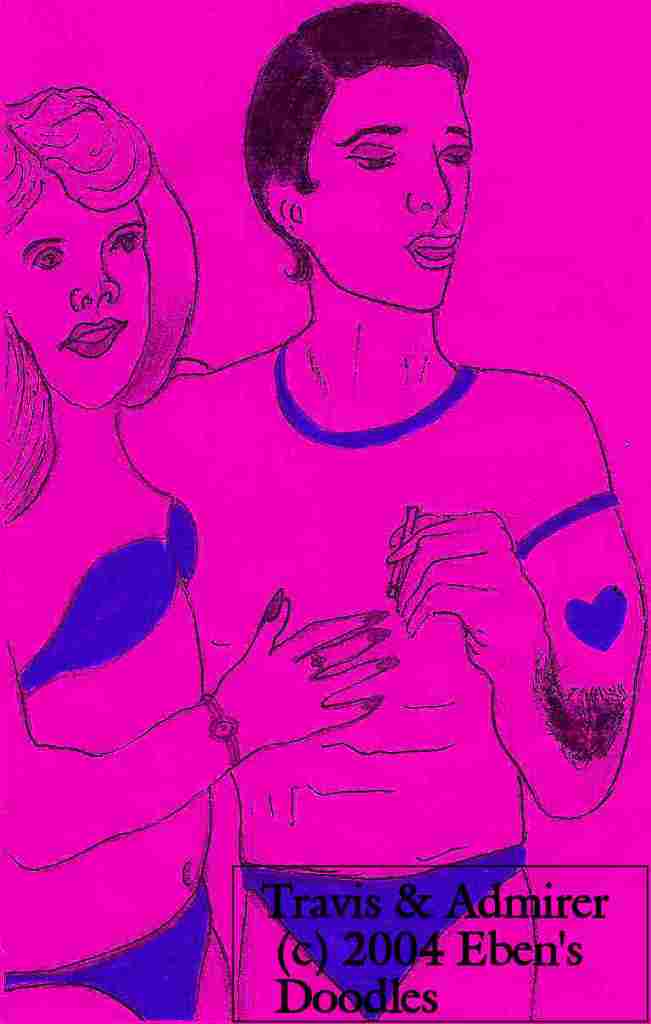
“Just some old girlfriends of mine!” Travis commented, sweeping the snapshots up into his shirt pocket. He spun quickly around, looking for something. He didn’t seem to find it, and looked as if he could throw someone bodily out of the room. Then he must have remembered, for he stuck his hand into his pants and pulled out a paper.
“…-Canfields, Coopers, Butlers, Johnsons, Pickens, Schultzes, Joneses, Duvalls, Richardsons, Grosvenors, McCoys, Hummelsines, Wintons—“ He paused to take a breath and belch. “Oh, balls, what a bunch of over-educated stuffed shirts and whine-y snobs we got on this old boat! Well, lemme see, it may pick up—“ He continued reading: “—Otises, St. John’s, Mannings, Harts, Hartleys, Foresters, Bakers, Doyles, Haskinses, Bormans, Burgers—“
He dropped the paper like it was dirty toilet paper. “No such luck!” Travis cried, flinging himself in a chair.
“Nothin’ but boring, old, tea-drinking Ivy Leaguers, I tell you! Filthy rich too, with their blue-veined snoots up to here!” Travis demonstrated. "The most exciting things they can think of to do is show slides of their 'scientific' trips, like those Johnsons taking that million dollar, three-colored yacht of theirs up the boondocks of the Nile River when everybody knows the French Riviera is the only place to go with a nice, little bucket like that!"
Travis paused to catch his breath. “Imagine what you could do with your own love boat?" That thought entertained him for a moment with images only he could appreciate. Well, “ he sighed with his eyes rolled up like a stained glass martyr's, “I’ll just have to make do with whatever I can find in this stinking Second Class.”
“Where’d you get this?”
Travis winked confidentially. “Oh, I have contacts.”
He lit up. “Hey, I think I saw the Greenbaums on the list. Now that is some tush, Mrs. Greenbaum, and her husband, who is old as the hills and has one foot in the grave, doesn’t even keep an eye on her despite her looks and her being a lot younger than he is. All the old duffer does the whole voyage is read the New York Times and glance through the stock market listings for his blue chip investments and then nap. That is certainly one good possibility for little brother. There may be others just as good, if I keep an eye out.”
Van stared at him, then glanced back at the list. How, he wondered, could Travis get one?
Travis threw down the list without offering Van a look and sneered as he glanced round the Second Class cabin.
“Hey, just like I thought. This old tub is a waste of my money! Not one bucket of champagne in fifty yards of us. I’d say that’s what a cheap way to treat the upper crust! Of course, they’re all going for the ‘educational value’ of the tours in Peru, you know!”
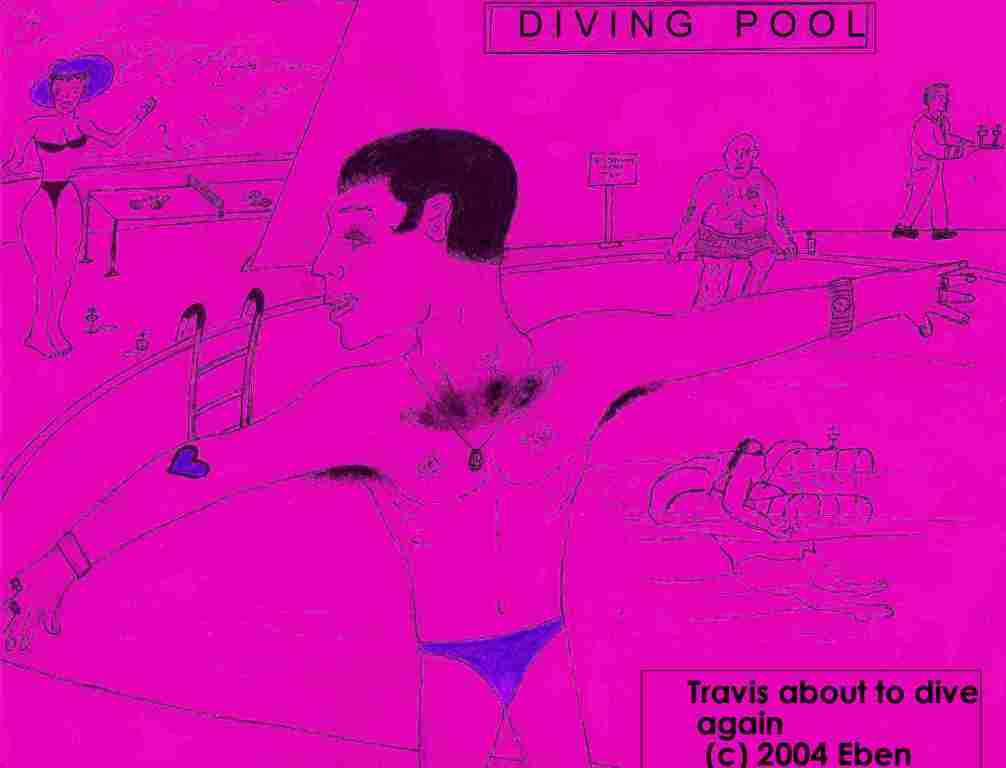
Leaving one drawer open to sit on despite the sounds of it spliting, Travis sat and faced Van, giving Van's belt buckle a tug. “Well, man, are you ready to shoot your wad? Why don’t you and I go for a few drinks to get little brother perky for later, and maybe we’ll run into a couple good looking dames at the same time?”
“Forget that!” Travis said, heading for the door. “Cmon, let’s go!” Flashing his brilliant smile, Travis flung open the door, which to Van at that moment seemed to promise almost everything life had to offer someone his age and with his relative inexperience.
He jumped up, not wanting to be left behind, and hurried out after the quick, darting figure of his exciting, vastly--experienced cabin mate.
“Hey, man, let’s try another in First Class—they won’t know us from the Grosvenors, so we won’t be stopped. Just say you’re their relatives, and for a few days they’ll believe you before they begin checking you out on the register. I know, man—for I’ve worked—I mean, I’ve done plenty of these cruises before, and they're all the same bunch of snobs, just wearing different clothes, believe me!”
The First Class bar was very dark with walnut paneling, quiet, with a huge stage and for contrast a glittering bar big enough to dance on all decorated with mirrors and giant silver shells like a prop from a classic Hollywood Fred Astaire set. Two bartenders, a young waiter, and one hostess-looking woman in pearls and evening gown stood waiting as if for them.
Travis, putting on a scornful look and raising his nose a couple notches, strode up to them. “It’s a little early, I know,” he began, “but my friend and I-—well, we’re first cousins to the Grosvenor family-—the ones with the magazine that’s about chimps and bare-breasted native women, you know. Okay, enough intros! How about a little refreshment before dinner, gentlemen? Isn’t that right, Cousin?” He turned to Van, who didn’t take the cue and was supposed to nod, but looked embarrassed.
The bartenders stared at Travis and his “cousin” who looked completely unlike him. They seemed a little unsure, but one motioned to the other, who then led Travis and Van to a table. It was the most beautiful display of crystal glasses with napkins in them, flowers, candles and silver candelabra Van had ever seen. He sat down on the plush, gold-decorated chair that the man pulled out for him. Travis seated himself, managed a trick that made a cigarette flip from the table into his fingers, and let the waiter light his for him.
“Thank you, my good fellow!” Travis clowned, screwing an ice cube into one eye and peering at the waiter.
Glancing several times at the head waiter as if to beg off the task, their waiter asked them for their orders. Travis did all the ordering. “Well, let’s toast Jamaica and the beautiful babes there I just left behind! A Screaming Andromeda on the rocks for me, and a nice little Winged Perseus for my dear cousin!”
Van waited, nervous about his first drink of hard liquor, and not knowing if he could stomach anything with so strange a name, particularly since he hated the thought of anything with wings going down his throat.
Their orders came with little umbrellas and the bitter green olives toothpicked together with a slice of mango. Travis was on his third or fourth smoke by then, littering the exquisite tablecloth and settings with ash. He also smudged out his cigarettes on a plate instead of the tray provided. Van, watching him, was sure enough of niceties and manners to realize by now that Travis did as he pleased, not as most people would do in the same circumstances.
Still over-awed by the setting, Van tried to follow Travis’s lead and not make any atrocious mistakes. He dutifully sipped the hot peppered, caramel syrup laced cocktail, and hated every drop of it. Almost nauseated, his mouth and tongue aflame, he got half of it down, and it went to work. His whole insides glowed and blazed like a furnace.
Unfazed by the cocktail as if it has been a glass of water, Travis grew even more animated and lively, if that was possible. Doing a balancing act with the cocktail umbrella on his nose, he went to the bar, tried to get the hostess to dance a few steps with him, seemed to shock the bartender with a dirty joke, and when he was denied more drinks after refusing to show his identification, he gathered up Van, who followed somewhat unsteadily.
“You don’t get paid then, if I’m not completely satisfied with your service!” declared a haughty Travis as he dumped a tray of Maxim’s of Paris truffles in the pocket of his coat to munch on later, and he left the bartender trailing him with the tab in hand.
Travis could walk quickly, and it was all Van could do to keep up with him as he groaned and held a hand pressed to his hurting belly.
The ship shifted and felt to Van as if it were underway. Travis confirmed this too and seemed relieved after he took a quick look around. “Well, the old banana boat is finally off! They heard the thunderous blasting of the ship’s horn. “Hey!” he said to Van, grabbing his arm. “Let’s get our sweet, young asses to the upper deck for the view of Manhattan! You can’t miss that!”
It was a magnificent sight, as Van discovered, though he was sweating hard asd he gripped the rail, and beginning to reel from the blast furnace effects of the Jamaican cocktail. In the cool wind of a night sky, the whole crowded stupendous mass of Manhattan’s jewel-like skyscrapers gleamed with incredible promise of a glorious future and excitement beyond imagination.
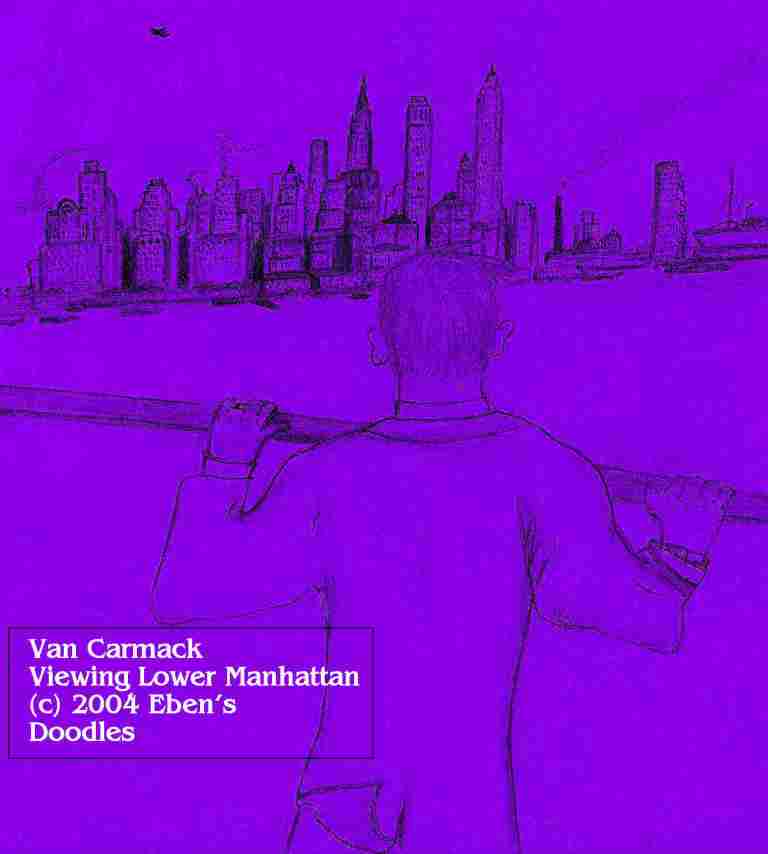
Travis too seemed to enjoy the glittering sight. He leaned over the railing, his hair blowing back from his forehead. “I don’t know why, considerin’ how many times I’ve been screwed by the local merchants, I never seem to get tired of the old town!” he said, taking chocolates from his pocket and stuffing his mouth.
The ship turned slowly and majestically out into the great bay, with Brooklyn and Queens and their millions of blue-collared firemen, factory foremen, policemen, public school teachers, garage repairmen, and shop owners on one side and Staten Island and Jersey with their millions of white collared stock exchange analysts, college and university professors, lawyers, doctors, on the other.
Travis pointed out one thing after the other as if Van were a country bumpkin for residing out in Queens. “There’s famous, old Ellis Island where all the immigrants were processed like sardines in a can—only now it’s kaputt, abandoned,” he said. “I’d buy it and make it a four star casino and hotel with a chorus line of the Rockettes to kick off the entertainment each night, if I didn’t have other better things to do with my time.”
“What other things?” Van wondered.
But Travis had passed to new subjects. He gave himself a luxurious stretch, and patted his belly.
“For one thing, I’m starved to the point of collapse! Let’s go!” Travis announced to Van. He strode off. Van, not sure his stomach could stand any more punishment, nevertheless, followed.
They were first in the dining room of the First Class restaurant called “Bird in Space”. To fit the name, a metal sculpture by the world-famous Romanian peasant artist Alexander Brancusi stood in a gleaming, mirrored pool in the entrance. Over on a wall with a fountain playing in a pool beneath was a giant reproduction of Andy Warhol’s Campbell’s Soup Can pop art next to his pouting, silk-screened Marilyn Monroe. Walking in on the plush carpets, into which his feet seemed to sink several inches, Van felt he was really out of place, but Travis seemed to know such luxury like he had lived in its midst all his life, and this assured Van so that he followed without much fear he might be turned out, since his fare, after all, was Second Class.
Waiting at the entrance for the hostess to come, using his lighter, Travis took a smoke from his cigarette case and lit up properly without making a trick out of it this time. He preened himself a bit in the mirrors that stood floor-length everywhere you looked. His dinner jacket fit the high-class decor perfectly, and that made Van uncomfortable, for he was wearing only an ordinary suit jacket.
“Hey, man, I really don’t think I’m dressed enough for this place,” Van ventured, as the hostess in a stunning black-sequined, strapless gown approached them, her platinum blond hair piled high and laced with innumerable seed pearls.
Travis turned and seemed to see Van for the first time. “Oh, nonsense! Just keep behind me, and and if I don’t pass some gas you’ll be just fine.”
Travis stepped toward the hostess, said a few words to her, and she turned and led them to a table by the windows that looked out upon the sea.
Seated, she left them with a poised ballerina’s walk and a waiter came quickly with the cocktail list. He took their—rather, Travis’s orders—and soon they were drinking several different drinks for which Van had no names. Van could hardly walk when Travis was ready to move again. “I never like to eat with water reflecting in my mug,” he declared to the waiter. “We want people around us, and, particularly, beautiful women, not a bunch of lousy seagulls diving for kitchen scraps!”
He told the waiter a joke about a certain circus fat lady and her trick dog in heat, which brought a shocked expression rather than a laugh, and the waiter reluctantly led them to a table further in, where New York socialites in evening dress were beginning to fill the tables.
Travis immediately began eyeing the women at the various tables. He thought the ones nearest him were not to his taste, being too fat and grandmotherly in looks, and wanted to move once again. He rose up. “I’m going to the john,” he said to Van. “Wait here for me.”
Five, then up to ten minutes passed. Van began looking around in earnest for Travis. He began to wonder if he should get up and seek his cabin mate out. Finally, with the waiter staring at him when he couldn’t bring himself to order, Van rose embarrassed. “I need to find my friend first,” he said, stumbling toward the entrance on his father’s heavy, awkward feet.
“Am I drunk?” he wondered. He felt so strange and whirling in his head. He made it into the splendid entrance, stopped to dance with the Bird in Space which had somehow got Marilyn Monroe’s breasts and legs, or so it seemed, then spun out, getting his feet to the ground once in a while as he made motions with his legs. which were always moving up above his head for some reason.
How he made it to the restroom, he did not know afterwards. He found himself some time after leaving the table, kneeling over a toilet in a stall of the First Class men’s room.
“Are you all right, sir?” an attendant with patent leather shoes was calling to him through the door.
“Yes, I’m fine!” he managed to say. But he wasn’t fine, he dimly realized. He had thrown up over the toilet, and his hands were in a mess of what looked like tomato ketchup.
Pulling off masses of Warhol’s self-portrait decorated toilet paper, he tried to clean himself up. When he had done as much as he thought necessary, he opened the door and stepped out not realizing he was stark naked from the waist down. He saw the attendant’s face, his eyes staring at him and his mouth saying something. Moving past, Van could only think of getting to his bed, wherever it was. He floated out of the men’s room, his rear bobbing higher than his head so he had to pull it down.
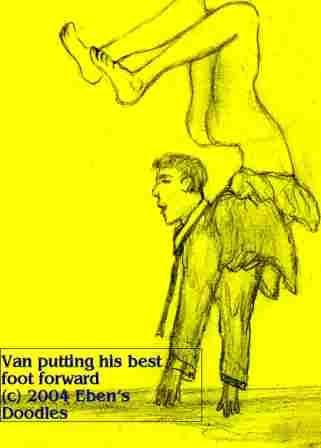
“Hey, Travis, I was looking for you!” he said to the face that loomed, two sizes too big, in his own face.
“I didn’t know you couldn’t hold your liquor! The party’s over, bucko, you’re going straight home.”
Travis didn’t take the elevator but chose the stairs where Van could puke all he wanted without bothering anyone. On the way down Van let loose just as Travis expected it would happen, slipped in his own stomach’s contents and hit the wall with his head so hard all the lights went out.
He got to his feet, feeling a need to go to the toilet and throw up at the same time, and he made it there, collapsing again. When he had thrown up, he sat on the toilet and let the remainder flush through his system. He was so dizzy when he stood up he fell and went crashing on the floor. But he felt little pain from the fall. The tiles felt so smooth and cool, he just lay there enjoying them.
How the floor rocked and swayed, this way and that, beneath him. It was a throbbing, rocking, swaying kind of crib, and he was an infant again, caressed in sweet sleep. But it didn’t stay sweet very long. Crashing waves, shattering bows of giant cruise ships stuck onto reefs, one shaped like a ruined tower. Then hurricanes of wind and rain and the sudden upsurge of ruined gates he recognized as the very New York Fair’s gates he had helped city park crews dismantle and cart off in trucks to barges that in turn transported them to an ocean dumping site off the Carolinas and Florida.
Van groaned. “I’m fine.” He struggled to sit up.
“Sure you are!” Travis laughed, pushing him back down.
Van suddenly felt burning thirst. He saw a container of ice water next to him on a stand. He started to reach for it, but Travis knocked his hand aside.
“Are you crazy? No water just yet! You’ll just make yourself drunker than a skunk with that!”
Van, feeling like he would die of thirst, sank back on the bed.
Travis picked up the telephone, ordered strong coffee. There was a knock, and room service entered.
Travis smiled, took the coffee, and after tipping the attendant with some a fiver he had taken earlier from Van’s wallet held it to Van’s lips.
Van, realizing he was beginning to come out of a pretty bad situation, took a sip. A couple more sips, and he began feeling better. He wanted more, but Travis shook his head. “Just wait. I’ll give it to you. You don’t need the liquid right now. You’ll just get stinkin’ drunk again and we’ll have to do it all over again.”
“Now a cold shower is prescribed!” Dr. Travis ordered. Van tried to lay back on the bed, but Travis dragged Van off, and Van didn’t like the idea at all. But he was helpless clay in Travis’s hands. Travis stripped off Van’s filthy jacket, shirt, and tee shirt.
“Time for a bath!” Travis barked, going for the champagne he had brought in a bucket. Carrying a glass of it, Travis then turned on the shower full blast. When Van was ready, Travis opened the glass door and pushed Van in. He stood gasping with shock as the frigidly cold water struck him head to foot. But it did the job. He couldn’t endure it for more than a few moments, but he was sobered up immediately.
Shuddering, he stepped out, grabbed towels more for warmth than for drying himself off, and in a few minutes he was back in bed, trying to warm up. Travis, who had left the room for a few minutes, returned, glanced over at Van huddled in the bedclothes with his eyes wide and his hair tangled and wet, and laughed.
“I see Lord Carmack's back in the real world!” he said, laughing. Travis went to his own bed and sat down, lighting a cigarette. He held out a hand, examining his nails. “I just may go and get a manicure. I need one. How about you? The manicurist is really some looker. I think I can get a date out of her for you. I’m already hooked up for the evening—-but you seem to need big brother’s help.”
“How long have I been sleeping?” he asked Travis.
Travis blew a smoke ring. He wasn’t particularly interested in Van’s condition any longer. He got up slowly, examining his face in the dresser mirror for any missed hairs or pimples. He seemed to have forgotten his invitation to take Van along. “I could use a shave too—well, I’m going! See you later.”
“But—“ Van said, but Travis slammed the door on his question.
Van felt like sleeping, for he was warmed up now, and he must have slept some, for he awoke when he heard people laughing, it sounded like laughter, and some kicking noises at the door. The light was off, so he began reaching around for the lamp at his side table, and before he could find it the door burst open and a girl darted in, saw Van in bed looking surprised, and laughed and spun out, leaving Travis standing in the doorway.
Van was genuinely shocked, but felt sorry he had messed things up for his cabin mate so early in the voyage. He himself had hoped to find romance onboard this cruise, but now he had spoiled it for his cabin mate. But what could he have done differently? Not gotten drunk? Not fallen sleep and been awakened by the laughing behind the door? He was confused and didn’t know what to say.
Travis, rubbing his face where he had been kissed, went to the bathroom, and soon some clothes were flung out on the floor, including Travis’s dinner jacket. Van heard sounds of the shower going, then a toilet being flushed, and a strong scent of cologne came out the half-closed door. Van, wondering what he would do next, since he had missed dinner, saw by his watch it was early morning, 6:35 a.m. Should he get up and dress? What was Travis planning to do?
While Van was still dressing, Travis strode out, a towel around his waist, his hair combed sleekly to his head and his body exuding a powerful scent of a fake Lord Byron’s Aramis cologne.
As Travis dressed, Van wasn’t sure what to say about his first night out aboard ship.
Travis grinned when Van looked his way. “You’re on your own, buddy, from now on I didn’t know you were such a kid about such things. I’m not your nursemaid! They all thought I was leading an innocent little boy into sin or something! What do you think that makes me look like? And it’s all your fault, man!”
“Who do you mean?” Van blurted out. “Sure, I’m not much of a drinker, but I didn’t mean to get you in trouble.”
Travis finished with his bow tie, slipped back on his dinner jacket but not before Van recognized the cuff links. Should he say something? Van wondered, bewildered. Maybe in the mix up of their belongings on the floor, Travis had grabbed his by mistake?
Travis beat him out the door, and together they walked toward the first restaurant. “Wow! What broads! I had some time dancing with every one of them!” he bragged to Van on the way. “They let me grab anything I wanted, right down to their tush!”
Several girls walked by, but Travis was ready for them with a whistle. He slapped the behind of one who fell back of her friends a few feet, and she looked angry but dangled her key in his face, but when he snatched at it she was quicker and ran off to catch up with the other two girls.
Van, amazed at everything Travis did, for it was all new to him, was trying to learn as fast as he could. He was feeling good again after a bad night, his senses restored, and his appetite reminding him he could use a good breakfast.
Travis got them a table, but seemed bored stiff. He ordered a breakfast, but hardly touched any of it. Van was ravenous. He wanted more, and the waiter brought more. But there was a buffet, and Van went to it to get a third helping of the special crepes, toppings, bacon, and various fruits that were heaped on platter after platter.
Offended, Van must have showed it. Travis quickly smiled, laughed, and started walking. “Join me when you’re through. We can play some ball or something. Maybe some exercise will get me up an appetite like yours!”
Mollified by Travis’s remark, Van enjoyed his breakfast, then went out to find Travis. He couldn’t locate him for quite some time, searching one deck after another on various levels. Everyone, it seemed, was involved in some kind of sport. He hadn’t seen all the people on board together like this, and now he saw hundreds of people gathered round the pools and various deck games and volley ball nets. He was too dressed up, he saw. Travis, too, was out of place in his dinner jacket, he thought, as he found him seated at a pool side table scanning the more likely female swimmers.
Travis ignored the younger women in the water playing a kind of water polo with big balloon balls and was talking to the married women, while the husbands read thick William Styron or Cozzens’ novels. Drinks were served Travis and the woman Travis was talking to with the greatest animation, Van noticed from where he stood watching about fifty feet away.
The woman rose after a bit, and she and Travis started walking down the deck, leaving the woman’s husband still engrossed in his novel. Further down the deck, where Van followed them, they joined hands. Then they stepped through a door and Van, trying to follow, couldn’t follow fast enough, for they were nowhere to be seen in the corridor when he reached the door. Going in, he went until he found a bar and casino, with a French cabaret-style stage show in progress. He slipped in, stood in the entrance, trying to see if he could see Travis anywhere. What was that?
He thought he saw Travis arm and cuffs and a woman’s arm entwined, at an upper table set behind some tree foliage and fancy iron grillwork, but he couldn’t be sure unless he went up there and actually spied out the land. Should he? Was it his business?
But try as he might he couldn’t find any unattached young woman who would give him so much as a glance. They all were with families or with boys their age, it seemed. He saw plenty more older women, some sitting alone with their drink, cigarette, novel or a magazine. As he walked the decks, he felt eyes turn to him from time to time, but he felt unsure what to do and kept walking, hoping the right contact would materialize—just how he couldn’t imagine. A couple hours passed, and he realized nothing much could be expected that way, so he decided to go back to his room. Maybe Travis was there, and he might want to do something together.
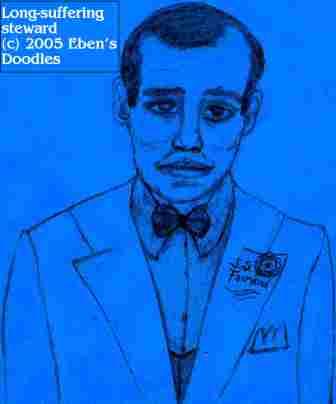
“It’s the dead bolt that is locked, Monsieur,” the man explained. He took his own master key, which could deal with dead bolts, and in a moment the door fell open. The steward stood aside as Van thanked him and stepped into the doorway.He explained his difficulty, and the man, an Italian, seemed to think his request was odd, but at last he agreed to go and see what the problem was.
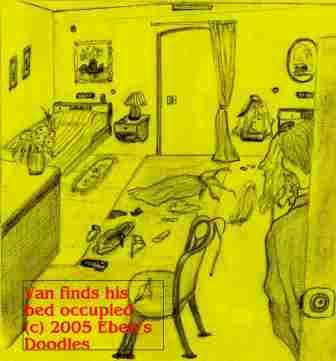
For some reason he felt betrayed, not over-awed by Travis’s sexual prowess. Was it the missing cuff links that showed up on Travis’s sleeves, or the drunken binge Travis had led him into? Or now the travesty—for it was an outrage of some kind—of Travis taking advantage of him in his own bed while other people were playing water polo or eating breakfast? Whatever it was, or a combination of everything, it put a bad, sour taste in his mouth.
Up to this point the cruise for him had meant an open door to a world of mystery and romance, but where was the mystery? He had seen Travis —that handsome, smiling face and muscular set of shoulders attached to a less impressive torso and legs too thin, and his back pimpled and scratched all across it! Travis’s quick smiles, quick cover-ups, quick moves and constant diet of cocktails, chocolates and cigarettes, not to mention too much body cologne—he had had enough of Travis for a lifetime.
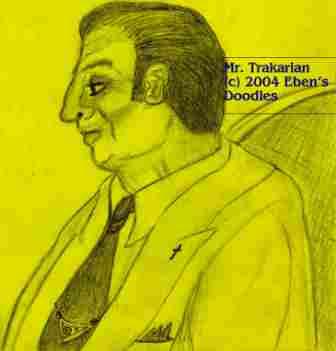
Feeling he was the only one who hadn’t a genuine friend on board, Van was open to a conversation, even with this stranger with the silvery hair, broad face, and massive build.
“Yes, sir,” he replied. “It should get even warmer today, right? We’re probably going to reach the Carolinas by ten or so tonight.”
“True,” the man said. “My name is Sarkos Trakarian, and yours?”
“Van Carmack.”
Van nodded, and the man paused as if to digest the information. Then he moved his chair so he could sit closer for a more private conversation—closer than men would normally sit. This made Van uncomfortable, but he didn’t move away, and the man opened up to him the reason why he was surprised by Van’s name. “You have the name of my ancient Christian homeland,” he explained. “We—[he turned and indicated with a dark-haired thumb a group farther down the deck playing some kind of bowling game]—my family comes from there originally. I came over, a refugee, to America in my early teens, just after the worst of the Turkish genocide forced us all to leave our lands or be massacred in our homes, fields, and shops.”
“Your country has my name, you said? Where is it?”
The gentleman laughed, but his eyes were kind and Van didn’t feel like he had said anything foolish. “Well, it’s now called Armenia by the outside world, if you know where that is.”
The man scratched his chin, then said, “I can’t really pinpoint it without a map, but if you know where Turkey, Iraq, and Persia are, well, Armenia is in the middle where they all come together in the north. And that is the big problem as they see it. They all want to press my country and its people out of existence in order to make sure they won’t lose the territory they have seized from us in the past! We have had to flee our enemies and give up homes, lands, and cities many times when they have invaded. Even the Russians, the Soviets, are no better. They are just as greedy for our lands which they do nothing with when they have them, lands that were ours more than a thousand years before Christ and another six hundred years before Mohammed!”
“What is your country like, sir?”
“No country is so beautiful-—the mountains, the deep valleys, the blue lakes—with wildflowers and almond trees everywhere! It is all so pure and sparkling with bright color and—well, God blessed it with such special beauty because he destined it to be humanity’s second birthplace. It is, you see, the second Garden of Eden. And if that isn’t enough, our Father Noah’s blessing still lies upon it!”
Van’s eyes widened. “Noah’s blessing?”
The gentleman looked at Van as if he were surprised he was asked. “You mean you don’t know? Our mountains of Arrarat are where Noah and the Ark landed. God blessed us, for in Van all things began again after the Great Flood withdrew, in which all the wicked people and the giants were destroyed. Hasn’t anyone taught you these things in the schools or the churches?”
Van nodded quickly, remembering a scrap about Noah taught him in early childhood. “Yes, I was taught about Noah. “
The Armenian moved even closer to Van’s chair. “What were you taught? Tell me!”
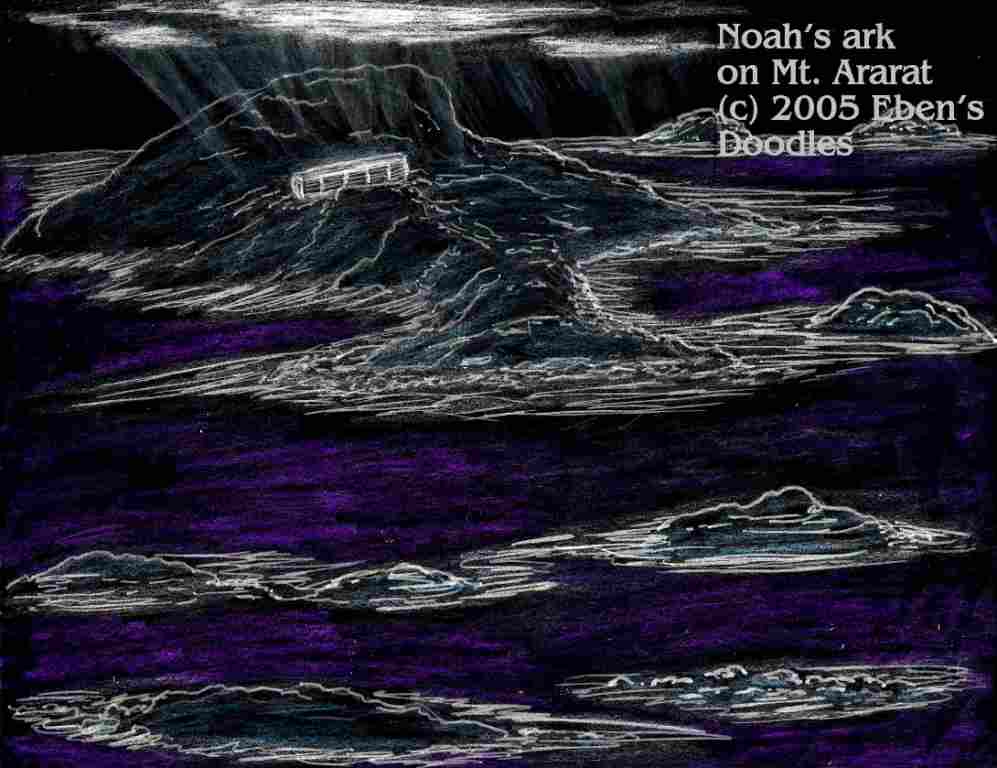
He jumped up, feeling he had been sitting too long and needed a change.
The Armenian rose more slowly and with a slight grimace as if he had some knee problem. He grasped Van’s hand. “It was good talking to you, and I hope we can talk again!”
“Yes, I would like to,” said Van, though he was uneasy with the closeness of body contact that the Armenian seemed to need. Instantly, he felt he had cut the conversation too short. Where would he go now? Back to his room? He hated the thought. Yet he felt drawn to it. What would he see anyway? He had some idea, having pored through some finger-stained issues of Playboy, which boys at school passed along from locker to locker.
Then he remembered his cuff links, of all things. He looked over on Travis’s side of the room. The bed showed nothing, not even a wrinkle. The dresser drawers were closed.
He went to the dresser and pulled open the upper drawer. Then he paused. Should he take the liberty of going through Travis’s things? Why couldn’t he wait and then ask Travis later? But he had to know for sure, and so when he didn’t see the cuff links he pulled out the second drawer. There he saw his shaver, cuff links, and several pairs of his best stockings, along with his missing tee shirts, all with Travis’s things.
He pulled out his own drawer to put his things back where they belonged and found a Hawaiian shirt he prized gone. He had intended to wear it on the cruise, and it now was missing! He searched both the drawer and then his suitcases, but it was nowhere.
When Travis did not show up after an hour of waiting, Van went for dinner. He returned, and still no sign of Travis. He waited around, went out and walked the decks, didn’t see the Armenian gentleman and his family anywhere, and returned to his room, thinking he might listen to music later in the disco or even ask someone there to dance.
It was a lonelyheart’s experience for him at the disco, he found. He sat out the dances, for everyone was paired off, and he couldn’t bring himself to ask any of the older married women who sat at the tables.
His blood running high from the music but with no way to express what he felt, he returned late to his room, and spent restless hours trying to sleep on top a bed that had been the scene of Travis’s escapade.
He was asleep finally when the door cracked open, someone came in, took a few items from the dresser, and slipped back out before he could get the light on.
“Travis?” he called. But he was too groggy and too late, and if it was Travis, he was too quick for Van.
He showered, shaved, and dressed, then went out, got some breakfast, then went in search. But he couldn’t track down his cabin mate. He did find the Armenian family man, however, and the man was just as friendly, willing to tell him about his troubled homeland, and even details about their escape to America, and how they had gone into business in California, with offices set up in Los Angeles and New York, that had to do with importing oriental rugs.
The rug business did not interest Van particularly, so he decided to resume search for the ship’s Casanova.
Without a sign of him to be seen, Van returned disappointed to his room, footsore and thinking of a nap. The door, he found, was dead bolted. To get in, he would need the steward’s special key. Van sighed and leaned back against the door. “Not again!’ he thought. This was getting to be too much a pattern. Were they in his bed again? Why his bed? He decided he had had enough of their trampling on his rights like that.
Van motioned vigorously, but suddenly he had no desire to go in at that moment. He backed away. “I’ll try it later, if you don’t mind.”
The steward shrugged. “Certainly, sir! Certainly! Just let me know, and I’ll let you in at once!”
“Thank you,” said Van, and he turned and went back up to the outer decks. There he hung around for a hour or so, and got tired of that and decided to go below, whether Travis and his friend were ready for him or not.
“It will serve him right, using my bed for his shenanigans, if I walk in on them a second time!” he thought grimly.
The steward came with the key and let him in. The room was empty. Travis was gone, and the place was a shambles.
He went to his drawer, on a sudden intuition. It had been rifled through, the cuff links, shaver, tee shirts, and some stockings removed.
“He might as well take my shorts too!” he cried, in a flash of anger. Then he counted his things, and he was missing some shorts too! At this rate, he wouldn’t have enough clean changes for the voyage, and he couldn’t stand the idea of not having a fresh change at least once a day!
He was wondering, a few minutes later, what to do, when Travis burst in, brushed by Van and collapsed on his own bed, lying with his legs sprawling over the sides. A moment later, he stirred, sighed, then got himself a cigarette.
“Hey, buddy,” he said to Van who was staring at him, “light me up, will ya? I’ve been pretty busy and little brother’s all tuckered out!”
Van couldn’t say what he felt at that moment. Surprise, anger, disgust, mixed with amazement that someone like Travis existed? He could see Travis lying there, wearing the stolen Hawaiian shirt, no doubt wearing stolen shorts and stockings, and what had happened to his shaver and cuff links? Travis patted his crotch. “Baby, baby, baby,” he moaned. “I tell ya, buddy, these women onboard won’t take no for an answer! Even I can’t keep up with the demand!”
Taking several deep drags, Travis relaxed, letting his words run a bit, along with a few sung bits and pieces of a Peter Duchin rendition of “Smoke Gets In Your Eyes.” Hearing Travis’s sing for the first time, Van listened, but his mind was on many other things. But he hadn’t any idea how to begin his wide range of questions. He just knew that Travis owed him a great deal of explanation for his behavior toward him the last twenty four hours. Was it going to go on the way it had? Van didn’t like the idea at all. He felt like he was just being used, and not only used but trampled on by Travis’s high-flying lifestyle.
Before Van could retort with something that even Travis might not like, Travis rolled again and was on his feet, stubbing out his half-finished smoke on a bed sheet.
“But—“ Van began, but Travis, scenting what was up, was too fast for the young man from Queens.
“Later, old buddy, we’ll talk all you want. You need to wise up on a few things—like the facts of life, for one! I can tell you all you’ll ever need to know about women, believe me. Listen to me, I know where to get you Grade A tush anytime, anywhere!”
“Oh yeah, there are other things in life besides tush!” Van shot back vehemently as he really meant every word.
The remark was wasted, as Travis shut the door on him, and Van was left, anger rising uselessly in him.
Rising mad, forgetting he was using his mother’s vocabulary, he glanced into the mirror above the dresser and saw how red his face was. But what did it do for him, getting mad like that? He wondered. Travis was just laughing at him, he realized. Travis knew he could do nothing, not until they docked back in New York.
But he realized he could do something. He emptied out his one drawer of the dresser, locked his remaining things in his suitcases, and then went out to buy himself a shaving kit at the ship’s pharmacy. He didn’t need a shave every day yet, but there was no telling when he could collar Travis long enough to find out what had happened to his shaver.
He left the room, feeling better than he had for some hours. He went and saw a French film about the Atomic bombing of Hiroshima—HIROSHIMA MON AMOUR--with English subtitles, which seemed to be a serious story but he kept looking at the women in it and couldn’t concentrate on the story, which seemed too foreign and incomprehensible to him. Afterwards, he ate at a restaurant, and when leaving ran into the Trakarian family, who invited him to join a family volleyball match. The volleyball game with the two sons and daughter of the Trakarian family, joined by their friends on board, made his day for him. The experience of being with people his age had been the best so far onboard. As for Travis, he had shown that he didn’t need him to enjoy himself. When Mr. Trakarian asked him to join the family for an evening Bible study, he was surprised at such an invitation, but thanked him and said he had to get back to his cabin.
He looked forward to the following day and its possible events. As for Travis, who gave him a bad taste in his mouth, he would just have to tolerate him and his ways, and make the best of having to share a room with a crotch-scratching ape. He decided he wasn’t going to let the likes of Travis spoil his cruise, for which he had spent a lot of hard-earned money.
All of a sudden he was surprised to see Travis, standing with two older women at one table, playing chips they handed to him. And Travis was winning! He was on a roll! A crowd soon gathered round as the stakes mounted in the thousands. The women, particularly the youngest, most beautiful, flocked to Travis’s side, and Van could see Travis soon was taking more notice of them than his game. His luck went down as his interest in women hanging on his every move went up. He made some desperate last throws and suddenly it was all over—-the casino raked in all his chips. Smiling, Travis shrugged.
Then the two older women dragged him away, turning angry glances at the younger women, who turned back to their partners.
He was in bed, sitting up with a volume of Santayana’s philosophy he had promised himself to read but reading instead THE MALTESE FALCON, when Travis came in, dinner jacket draped across his shoulder.
“So you like the high-brow, literary scene, do you?” Travis remarked, smiling, as he gave the Santayana a superior glance. “I’m no book-worm like you! I prefer living life, myself, rather than just reading about people who do! People who got to read for their thrills are more dead than alive, in my opinion!”
Van said nothing, and kept reading, though his blood began to boil.
Surprising Van, Travis prepared to go to bed at a decent hour too.
When he found he couldn’t concentrate, Van turned out his night light and turned over and shut his eyes.
This went on for two or three hours, Van thought. Finally, Travis seemed to have enough of that, and he lay back down. A few more minutes passed, with the light finally out, and then Van thought he heard footfalls on the carpet, very light, going toward the dresser where Van remembered he had left his wallet lying.
“Oh no!” Van thought. He switched on his night lamp, and Travis was at the dresser, just then turning with the wallet in hand.
“What are you doing?” Van cried out.
Travis laughed, dropped the wallet back on the dresser top, and lounged back to bed. “What do you mean? I was just checking for something in my wallet!” “You mean MY wallet, joker!”
Van rose up on his bed, unable to control himself.
“You’ve taken my shaver, my New York World’s Fair cuff links, my Hawaiian shirt, tee shirts, stockings—-swiped everything you wanted off me, admit it! Do you think I’m a moron or something? That I don’t know what I brought with me? I want it all back now, and not at the end of this cruise! Do you hear me, Travis? I say, did you hear me?”
All of a sudden Travis seemed to become a statue, or time seemed to stop. Whatever happened, Van had time to listen to the pounding of his heart. Travis then moved, shrugged, and lazily rose, giving his backside a good scratch. He belched and moved toward the restroom. Coming out a few minutes later, cigarette on his lower lip, only then did he pause.
Van knew Travis now was a boldfaced liar, the worst thing in his book. Could he take Travis, if it came to a fight? He and Travis were about the same size and build, he saw. He was angry enough to fight him at this point, but what good would that do?
They might both be put off the ship at Port Everglades, their last port call in the U.S. His whole trip would be ruined. He wouldn’t even be refunded his fare. Travis would probably talk his way onboard another cruise ship, but he knew he couldn’t, he would slink back home in shame for messing up his grand voyage of a lifetime.
Travis seemed adept at reading thoughts, particularly those hostile to him. “Aw, we might as well decide to get along. You can’t fight onboard ship, there’s nowhere to go but the H20, and there’s plenty of sharks following us for the kitchen scraps! Why, a fella could be walking the deck, say, and a little shove by somebody could send you over the side so fast you wouldn’t have time for one last fart. I know, buddy boy. I’ve heard of cases like that, real tragedies, and actually it’s happened a couple times on cruises I’ve taken.
"Poor guys! So if you think about it, it isn’t worth it, making any kind of trouble aboard ship.” He yawned. “So, if you’ll excuse me, I’m going to retire for the night and get some well-earned beauty sleep. You can do as you like, but tomorrow is another day where men will be men, and boys will be boys. That’s the world, take it or leave it.
"You might as well go with the tide, old buddy! Otherwise, you’ll just make things hard for yourself. And if it ever enters your mind to rat on me-—well, you better think it over carefully. I wouldn’t do anything stupid, if I were you.”
Sometime later he awoke, hearing Travis get up and go to the bathroom. The light was on for a few minutes, then was switched off. Travis crept out, locking the door after him. Relieved that Travis was gone, even though probably on another escapade, Van was able to sleep.
Was it a hour later, or hours? It was still dark and there was tremendous pounding on the door. “Lemme in!” cried a muffled voice that the rudely awakened Van recognized.
With a groan, he heaved out of bed and went and opened the door. Van automatically reached and flicked the light on an unspeakable sight.
Ducking past, Travis went into the bathroom, slamming the door. Van heard sounds of water running furiously and splashing on the floor.
“Travis, what happened?” Van called outside the door. “Were you in a fight? Are you hurt?”
“Naw, stupid! Bug off! I’m busy!”
There was sound of more water being sloshed about in the sink and onto the floor. “This woman I just met was having her stupid period, that’s all. Then her husband came back from playing the tables just as I was getting some good pussy, and I had to run for it. No big deal. Happens to the best of us!”
Van’s stomach gave a dry heave. He felt like he would throw up as he turned and went back to his bed. He lay down, staring up at the ceiling.
A minute or so later he heard Travis come out of the bathroom, throw down a soiled towel, and then fall and crash on his bed so hard it gave an audible crack and slumped over on one side.
He woke up in the dark, the room was cold and empty, for the porthole had been opened and left. He gazed out-—brilliant moonlight on the water as the ship rushed southward to a port call off the Everglades.
Travis seemed far and away at that moment. As if the whole scene were enchanted, it seemed Travis had no place in any of it. “I’ll go up on deck and see what it looks like from there,” he thought.
Dressing in a light jacket and sweater, he went out. He passed very few people at that hour of the morning.
The only black spot on the voyage was Travis his cabin mate, whom he knew he couldn’t escape no matter how hard he tried. Even on such a big ship he could not be avoided, Van knew. Feeling he was trapped and he had no other alternative, he decided he would seek out the captain and report everything. Travis was a thief and a liar and deserved detention on board. Van decided he wanted nothing further to do with Travis and his “high-flying” life-style of sleeze-ball “fun and romance.” Let him sit out the voyage somewhere in the ship under lock and key!
Suddenly, the whole ship gave a terrific lurch. A gigantic surge of water then began to ride up the side of the vessel, lifting it at the same time all along that side. Water poured round him and swept into the ship. For some reason the reversed Niagara had parted where he hung precariously, but had drowned the ship and its passengers. Van, instead of falling, found himself lying almost flat on the hull. The man assaulting Van yelled and fell back away from him immediately in the river that overwhelmed him. The inundated ship continue to lean over, farther and farther.
Arranging themselves in a row, the gates stood up completely on the water, erect and complete in every detail.
Holding to the rail with all his might, Van thought it was the end for him—the last survivor, as far as he could tell.
What could he do?
Van could see the three New York World’s Fair Gates fully restored, still floating in the water. Foremost, with the other two in the background, was the Dutch wooden shoe-decorated New Amsterdam Gate.
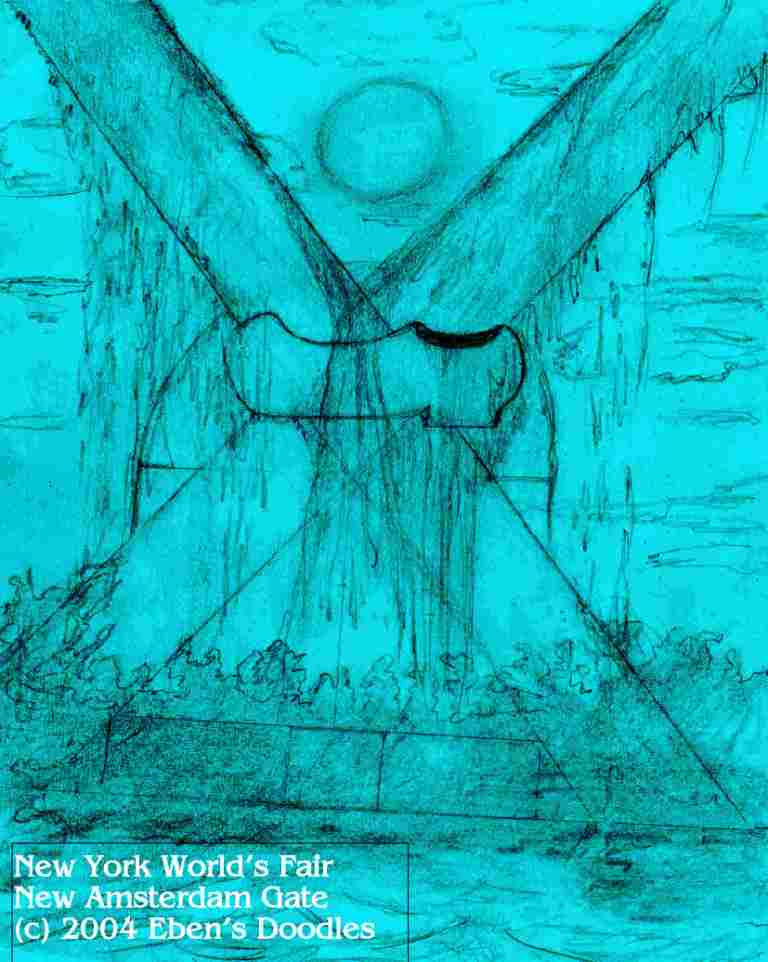
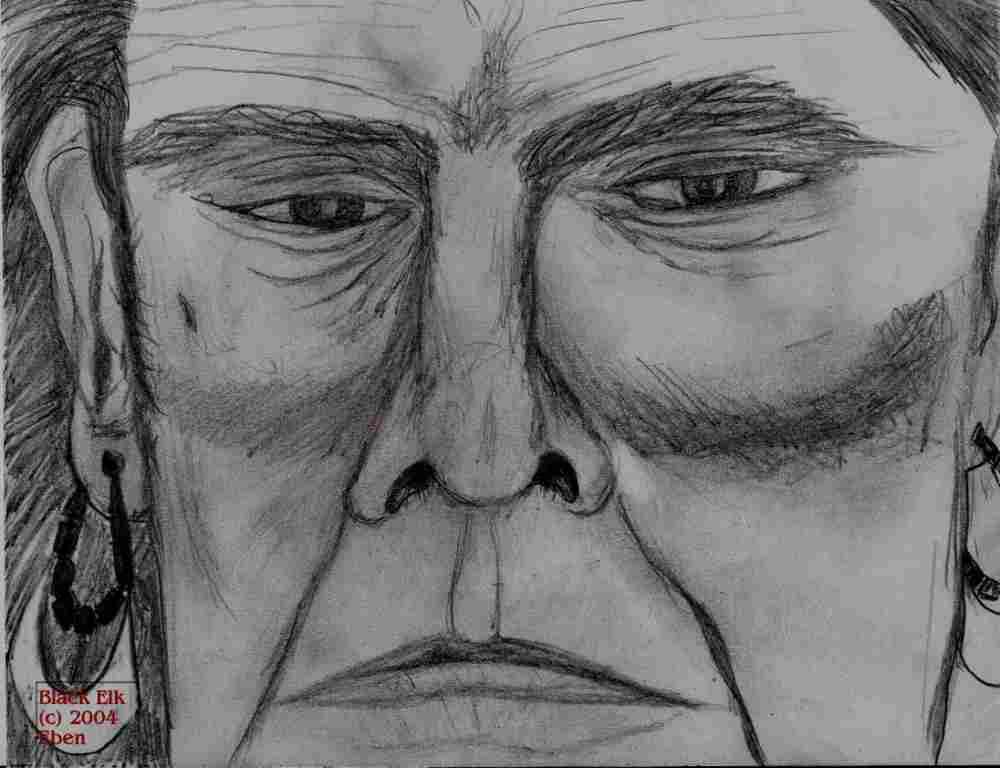
Having said this, the Indian turned and looked toward the Time Gates. “But you must choose which one. Have you chosen? You must have chosen already, for I have been sent.”
This was utterly preposterous! Van was thinking. He hadn’t chosen anything! It was all happening to him, the craziest things, without any say on his part.
The Indian seemed to divine his thoughts. He turned back to gaze at Van as if he were looking at a child. “We now will go to the places you have wanted to go, when they were shown to you.”
Van jumped up from his chair. “Wait a minute! I’m not going anywhere with you! I’m going to be rescued! I have to stay right here, and wave my shirt when the first scout plane flies over! It won’t be long—“
The Indian did not seem to hear Van’s excited protests. He kept looking at the New Amsterdam Gate, which then grew larger, so large in fact that the ship was moving right toward it like a toy ship might in a tub of water.”
Van felt his blood run cold as the Gate grew so enormous that the ship was going to be either crushed against it or—“
A few moments later the gate was passed-—they were safely through! Van looked back, and the three gates were visibly sinking back into the water, which leaped up around them with huge, crashing, white-frothed waves. A moment more, and they vanished before his eyes, swallowed up as if they had never existed!
Now only he, the Indian chief, and the ship were left on the wide open sea.
The plane passed over, climbing higher into the sky, not even pausing to circle round the ship, and Van slowed down in his run, then stopped, out of breath but still waving his shirt until the plane’s sounds completely died away in the distance.
He felt crushed, but a positive thought came to his mind. “There has got to be another! I’ll just wait until it comes! Hopefully, we won’t be caught in a storm before it arrives!”
Avoiding the Indian, he continued down the deck, then climbed to the upper decks to get a better vantage for signaling his rescuers.
As if a gigantic page was flipped, he saw as he gazed out over the sea the sky roll back and another sky substituted. It was a sky with a skyline of skycrapers he immediately recognized! The Big Apple's!
Van spun around, and saw the Indian. He had been followed!
“What are you doing here?” he cried rudely. “I don’t need a guide. Who asked you anyway? I am leaving this ship! What you do is your own business!” he said, realizing he sounded not too adult at the moment because he was so upset.
The Indian did not respond in any way that Van could tell. He just kept gazing quietly at Van, as if waiting for something.
“Well?” said Van, exasperated after a few moments of this. “What do you plan to do? You heard me! I’m not going with you, if that is your idea!”
Suddenly, the chief looked up over Van’s shoulder, and Van followed his gaze, and he then realized he wasn’t listened to anymore. The scene had shifted dramatically. New York and the World’s Fair had vanished. Beyond him, instead of sea, lay nothing but wide-open deserts, with rocky outcrops and the hazy outlines of mountains on the far horizon. The ship, as if it could move freely in any medium, whether land or sea, was cruising slowly and majestically toward the plains in the far distance.
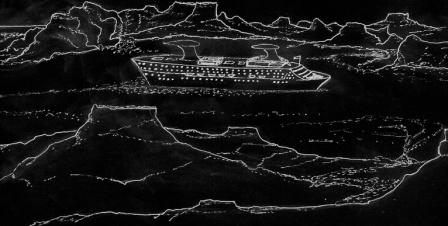
Then he remembered something, the Indian’s name. He turned sharply on him like an inquisitor from the Middle Ages. “You claimed your name is Black Elk. Who are you, really? What are you doing aboard this ship. We had a—well, something bad happened, and everybody aboard has been drowned except me. Then you show up! And the next thing the ship goes on this weird cruise, taking me places no real ship could go! Can you explain this? And even if you say anything, can I believe it?”
The Indian shook his head slowly. “In your language I am called Black Elk,” he began again as if interrupted. “I have been given life! I was dead, lying in sin and darkness like my people, a practicioner of our native medicine craft which could not heal even my own body’s ills, but now I am made alive in the true knowledge of God. Forevermore, I live in Him and His Son, Jesus Christ! He has given me His very Spirit. In Him the sacred hoop is restored. I shall obey His will forever. Let may all the earth and every creature obey Him.”
Van, with only a vague acquaintance with his Christian roots, couldn’t tell what the Indian was talking about. He turned away, disgusted. He looked up, hoping desperately for any sign of his tardy rescuers.
“I must be dreaming this!” he cried out. “This is a bad dream!”
The Indian smiled at him. “No, but you are the living dream of a great Dreamer, and you must complete your journey, for I came by obedience to the God of the Sky Lodges to help you. If you had not truly lived, you would not be here with me, viewing these things. Otherwise, you would wander on your Great Canoe forever and never find your way out back to your own time and your own people. That is the fate of many who first sailed with you. They have never left this Great Canoe, but they are all without eyes and see nothing. ”
Van, hearing the phrases, “find your way out back to your own time and your own people,” suddenly felt very alone, very lost, and very confused. He looked around. Was it true, as Black Elk intimated, that the souls of his fellow passengers, including Travis, were still aboard, but locked in a blind sort of existence, a kind of Limbo for the sightless? The thought was horrendous to him. What had they done that was so bad they deserved such a fate? How he wanted to be released from his nightmare cruise to parts unknown. He wanted it with all his being. But the ship, he saw, was moving steadily on, guided by an invisible captain’s hand.
Then Van recalled that he had glanced at the article about Chief Joseph of the Nez Perce retreat into northern Montana, the Indians fighting their way north as they tried to escape from the U.S. army chasing them to an inevitable last stand.
Beginning in the mountains, the homeland of the Nez Perce, in northern Idaho, the itinerary took them into the Rocky Mountains of eastern Montana, as the band of 250 warriors and 500 women and children, fled the Northwest. The next 1,700 miles showed Van battle after battle with the U.S. Army, which was equipped with Gatling guns, howitzers, and repeating rifles.
Seeing the Army soldiers, which did not seem to see the Fairwind that stood so huge above them, Van realized it had to be before the turn of the century, so that he had been taken far back in time. He watched the Indians continue their retreat in the dead of winter, down from the mountain and into the river plains, as they headed first south through the Bitterroot Mountains then north to the much lower, hill-sized Bearpaw Mountains.
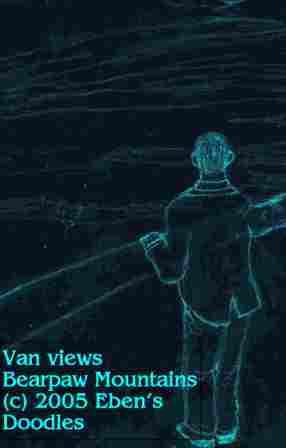
He also knew the outcome, which was defeat and capture for the Indians by the army soldiers just a few miles short of their goal, the border with Canada. Outrunning one army band, the Indians were intercepted by another army under Col. Nelson Miles.
After five days fighting in the snow and cold, the Nez Perce split forces. One group under Chief Yellow Wolf, with 200 others, fled across the Canadian border to join Sitting Bull. Chief Joseph, however, his heart sickened with so many dead and wanting to see the suffering ended, surrendered with his remaining people.
“He is John Gibbon, one of the Wasichu soldiers who attacked my Lakota people with Col. Nelson,” Black Elk explained to Van, who had turned, without thinking, to him for just such a word. “The other is one you call Chief Joseph.”
Van nodded, overcome by a glimmer of understanding concerning what the scene could mean.
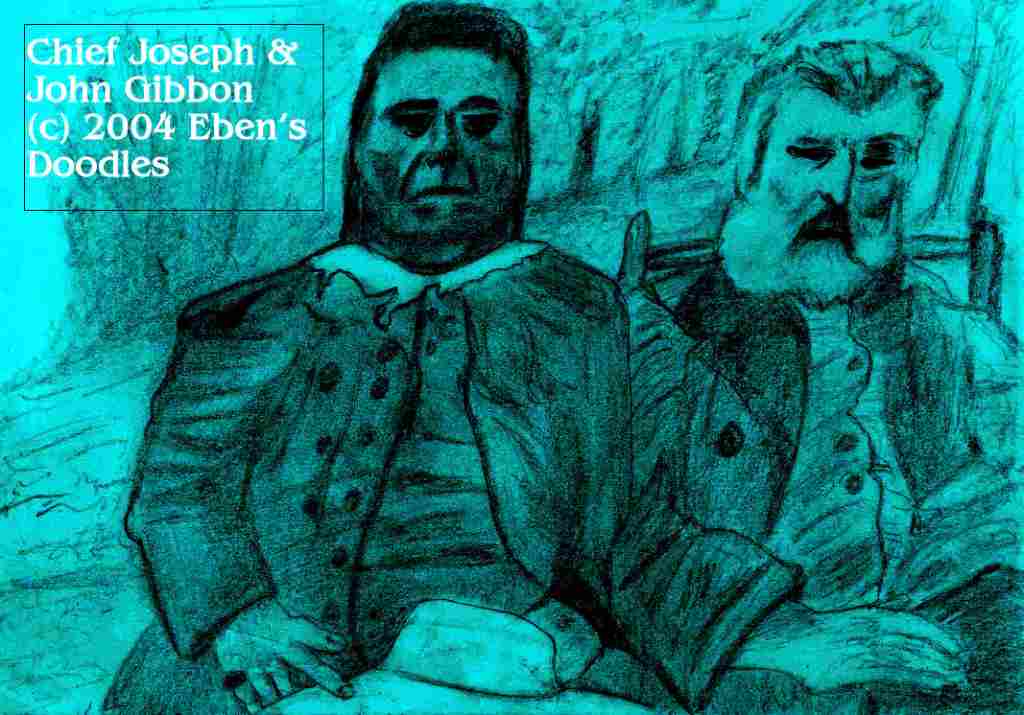
“I must have been born and lived only for this moment,” he realized, as he set eyes on the McLean house at Appomattox, Virginia, just before the surrender of Robert E. Lee’s forces to the Federals represented by General Grant. And he was thrilled beyond any words to describe the experience.
As with most Americans who were not scholars devoted to the study of the Civil War, the event at Appomattox had been so watered down, so poorly taught by succeeding generations of teachers, he scarcely had any idea what happened there on April 9, 1865.
Just prior to the signing of the surrender paper by Lee, the Army of Northern Virginia, the Confederate Army, had suffered its final defeat. Starving, half-naked, without ammunition, they had fought bravely to the last, but nothing could win them a break-through of Grant’s encircling lines of thousands of well-fed, well-armed soldiers. The southerners’ flag of truce went up. General Grant, in his field headquarters, stepped outside to view it.
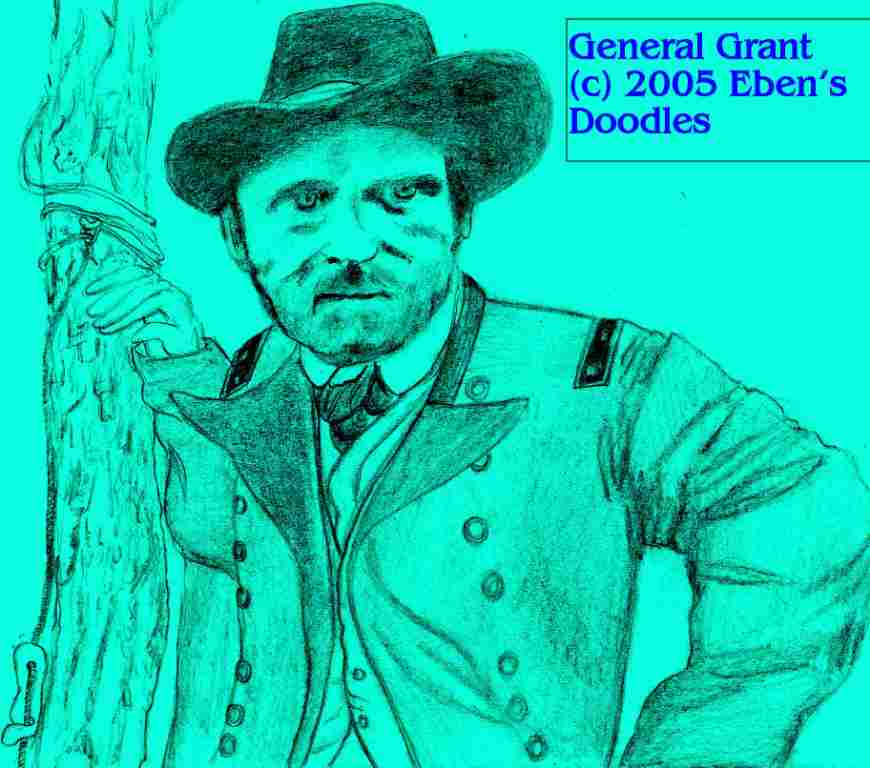
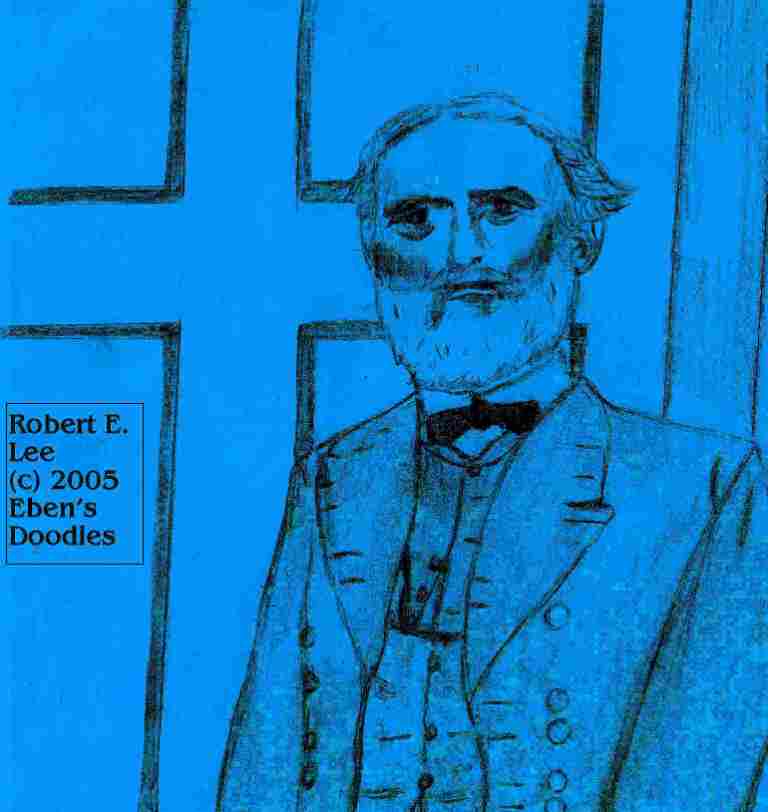
Every Rebel-spilt drop of Union or Northern blood should have cried out for revenge on that day, not concession and reconciliation! Yet, following their general’s example, following President Lincoln’s example too, the Union Army did not cheer and fire its arms at its victory but saluted the defeated Confederates for their stubborn, brave, courageous struggle against overwhelming odds for over four years.
Van was shaken to his core as he viewed the signing of surrender by General Lee, and to him this was the most memorable part of the events of Appomattox. Also from his wonderful, high vantage, he saw, leaning from the towering prow of the Fairwind, the whole countryside of rural Virginia covered with the camps of armies, Johnny Reb and Union, as well as the Appomatox Rail Station and the various county roads, the Peers, Isbell houses, the County Jail, the Court House, the Woodson Law Office, the Tavern Kitchen and Guest House, the Meeks Stable, and Meeks Store and House, down to the McLean House where the great war of the Wasichu brothers was ended and the schism between the North and South finally mended as best it could be.
How to end a war among brothers had been shown to him. But it was a troubling view, in a way. He had watched the proceedings in the McLean house’s parlor from start to finish, from 1:30 p.m. to nearly 4 with the sun sinking in the west toward the mountains and the great heartland plains beyond where another war would soon be waged and decided. He saw Grant and Lee attended by their various aides in the McLean parlor, and among Grant’s men stood Col. Ely Parker, a Seneca Indian, according to Black Elk. Col. Parker had helped with the draft of the letter of surrender terms. Just behind Col. Parker, at the signing by Lee of his letter of surrender, stood a blond-haired, blond-mustasched young major general whom Black Elk did not have to identify for Van.
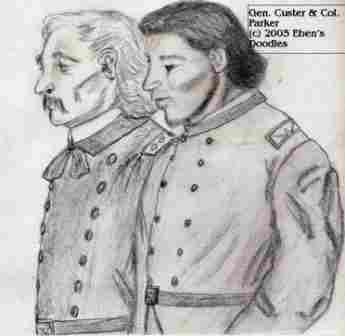
In a moment’s time it all came together. His struggle-—born of his parents’ struggle for mastery in the household—his futile seeking to escape and being confronted by someone like Travis, who had made an art of escaping responsibility for his actions—now the overwhelming evidence what rivalry for power, greed and lust can do to destroy a soul and a great nation—all this forced him to make a choice. Would he follow in their steps or not?
How his dark heart wanted power and influence, wanted money, and lusted! His heart was—-he realized—-his own worst enemy. The individual human heart, not somebody else, was the true villain in the long, dark trail of the human story.
Van offered his hand, and Black Elk, without even a hesitation for the sake of the Battle of Wounded Knee, gripped it firmly and manfully. It was the hardest thing Van had ever done, he knew, but he chose to do it, seeing into the caverns of his own heart as Black Elk had just advised.
Was there ever a disaster in the so-called Burmuda Triangle? Did the Fairwind actually capsize and everyone but Van drown like kittens in a rain barrel? Now, to his eyes, they looked again very much alive-—but he knew better. Living dead, that was all they really were. Could he tell them? No! He had tried, during the last moments before leaving ship, to get through to Travis.
Before they had parted, Travis shrugged off Van’s excited account of the “revised itinerary” of the ship taking him to places such as NYC’s World Fair of 1965, Bear Paw, Montana in 1877, and Appomatox, Virginia, on April 9-10, 1865, with optional trips to Pharaonic Egypt “I always suspected you were a crazy loon,” he laughed. “Now you just proved it beyond any doubt!”
“Do what?” Travis laughed.
“He said you would follow your own heart and the dark things reigning in it, and then one day you would fall in the pit you yourself had dug.”
Travis had then rolled his eyes and whistled. “Oh man! I paid my good money to listen to this sentimental, poetic crap? Lemme off this old banana boat immediately! I’ve had enough of your mealy-mouthed, Puritanic moralizing for two life-times!” And off he went in search of another cruise ship, two porters struggling to carry bags bulging with of items Van knew very well belonged to half the passenger list.
And he wished there was time to tell Van all that had happened, and what they had learned, but there wasn’t time enough in the world. Van, on his side, agreed. How could he share fully what had happened to him? No one would think, except the Trakarians, he was anything but out of his mind.
His name? Hinmahtooyahlatkekht—-Thunder Rolling in the Mountains. But Van knew him simply as Chief Joseph.
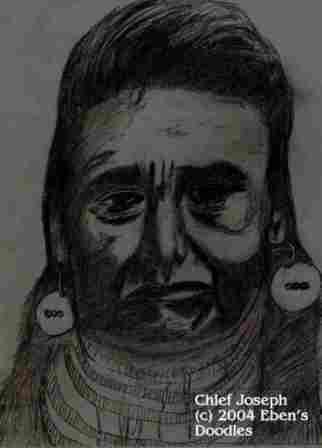
On his return east to visit his parents’ graves in Queens he stopped by Troy, New York.
There he found the trail led no futher, for whoever had written the letter and put it in a bottle, advising the finder to “stay on the white ship,” was impossible now to identify, even if she were still living in “stupid old Troy.”
Like the ancient, tragic Greek prophetess Cassandra of the Trojan War period, everything she had warned him about in her letter had come true.
Undeniably, he had seen the Room of Death, the Ruined Tower rearing up in his own heart’s depths, and the Time Gates.
Everyone but him and the Trakarians—who, he was informed by them, had experienced something equally unique on a cruise that had the same challenge he had faced--had drowned. Even if their bodies later walked off the boat, they still had drowned. What do you say to drowned men and women anyway? For them the Light could not shine again, they had chosen something else in passing, and the passing was in the night.
He certainly had changed, as the girl of the bottle’s letter had promised. But would they ever meet in life? She was certain they would meet. Maybe, he thought, on this one point she had missed it. How could they ever meet? He didn’t know her name. And by now she was very, very old, and quite likely passed on.
It was then he understood. The ripples of Troy’s inglorious “Cassandra’s” life, and his own, would have to meet somewhere, at some point or other. They had met once, to be sure. Surely, they would meet again. Life itself was based, he knew now, on just those very ripples mysteriously running into each other across vast gulfs of time and space.
Somehow he knew his own life story would reach her, and she would be rewarded for having reached out to him initially.
Pardon an old man, but he wept at the thought that they reach each other like that.
If that were not so, he would never have started a school for the hopeless in the outback of South Dakota. He remembered the Nez Perce too, how valiantly they had fought and lost a war for freedom. No queen of England ever rose to the greatness of a simple but lionine Nez Perce woman, Ta-ka-mappo, who fought with a rifle like a man.
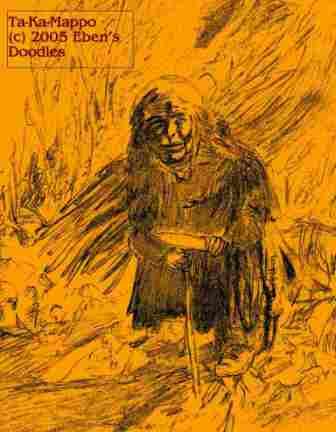
“It’s your fault poor Vanny’s like this—-a vegetable all the rest of his life!” the woman said, as her husband rolled his eyes and turned back to the sports section he was reading.
He has already told her, in so many words, a hundred times or more, it was HER fault! After all, she had always been encouraging him in stupid, artistic pursuits so that he would take off before graduation on an expensive cruise and get his head knocked in like he did. If Vanny had listened to his father and stuck to ConEd and electrical work, this tragedy, this totally wasted life, wouldn’t have happened!
Waiting for the nurse to let them in for another visit, the couple with graying streaks in their hair said nothing more, and when the door opened and a nurse beckoned them, they dragged themselves up and went in. There was absolutely no change, they found. He looked as young as ever, and, if anything, younger!
